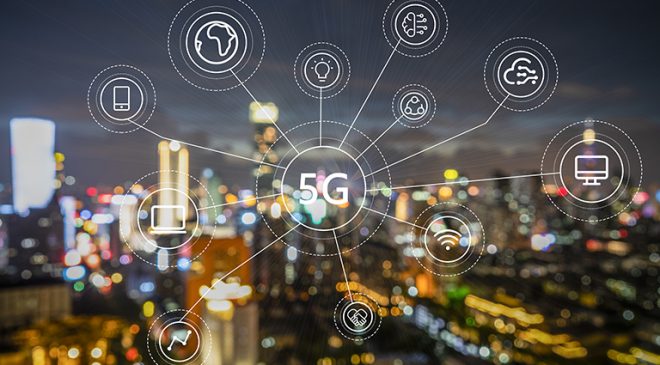
Growing businesses focus on technology strategy and recruitment.
South Australia’s Department for Trade and Investment has signed an agreement with Microsoft and Nokia, with eyes firmly fixed on leveraging Space and 5G technologies to tackle the world’s most challenging issues.
By fostering relationships with South Australian industry, government and academic institutions, Microsoft and Nokia will work together on pathfinder opportunities to demonstrate how space technology combines with 5G ultra low latency edge connectivity to usher in a new generation of digital solutions.
Microsoft has also announced that its growing Azure Space team is joining Lot Fourteen and collaborating closely with the Australian Institute for Machine Learning on space emulation innovation and with Stone & Chalk to support space startup business and innovation.
Microsoft and Nokia presence strengthens South Australia’s innovation capacity
Lot Fourteen is home to significant stakeholders and innovators in the Australian Space industry and is fast becoming an important anchor point and source of expertise for the nation’s rapidly expanding space ecosystem.
In collaboration with Stone & Chalk, which partners with experts, universities, investors, mentors, corporate and government organisations to meet the commercialisation needs of startups and growth needs of scaleups, Microsoft will support new space businesses developing innovative space technologies with its newly launched Microsoft for Space Startups Australia program.
Nokia will also expand its existing Adelaide-based 5G field force with the addition of a 5G engineering resource to co-develop use cases with the Microsoft Azure Space team and South Australian industry.
Premier Steven Marshall has welcomed the partnership between Microsoft and Nokia.
“This partnership between Microsoft and Nokia further cements our state’s standing within the global Space industry,” Premier Marshall said.
“It is testament to our good reputation of forward-thinking, and collaboration within the Hi-tech and Space industries, that companies of this stature continue to be attracted to South Australia.
“We welcome Microsoft and Nokia to Adelaide and look forward to working with both companies to build an even stronger space sector in South Australia and create many local jobs.”
Minister for Trade and Investment Stephen Patterson said South Australia’s reputation is gaining recognition as the epicentre of Australia’s space economy, with collaboration, partnerships and innovation leading the way in growing Australia’s space industry.
“Our continued investment in the Lot Fourteen innovation precinct and our ongoing work with industry on a $US6.5 million initiative to design and build a Low Earth Orbit satellite to provide space-derived services to the state, signals South Australia’s determination to continue to lead in this sector,” Minister Patterson said.
Pathfinder Projects promise giant leap
Working together, Microsoft and Nokia will deliver on rich new communications and data capabilities, and leverage satellite imagery, AI-infused analytics, and 5G-connected edge processing for Australian industries. These capabilities will enable a new generation of high-impact digital solutions in remote areas such as rail safety, mine automation and other use cases that require high-performance edge connectivity.
The two companies will also explore how space and 5G innovation can be adopted for the benefit of industries, such as Defence, which rely on high-speed, high-bandwidth and ultra-reliable connectivity in areas and situations that prohibit fixed cables and fixed connectivity. For example, ship-to-ship connectivity and 5G-enabled fleets (planes, drones, UAVs) connected through satellite technology.
Microsoft’s and Nokia’s collaboration will also extend to include the Australian Institute for Machine Learning and leverage cutting-edge technologies from both organisations.
While the initial focus will be on supporting South Australian organisations, the collaboration is expected to have national and international impact and help grow Australia’s capabilities and skills.
Chris Johnson, Head of Global Enterprise at Nokia said, “Nokia and Microsoft bring together cutting-edge technologies, deep skills and expertise, as well as long-term vision. We believe that by combining our 5G for industry capabilities with Microsoft’s space and compute capabilities we can deliver solutions that promise deep and lasting impact for Australian industries, and we’re excited to start that work in South Australia.”
Microsoft’s Azure cloud, Azure Edge, Azure Orbital (satellite ground station as a service), and emerging Azure Space, AI and machine learning technologies will play a critical role alongside Nokia’s 5G Nokia Digital Automation Cloud (NDAC) industrial-grade private wireless and digitalisation platform.
Lynn McDonald, a former US Air Force Colonel and lead of Microsoft Azure Space in Australia said, “We are delighted to be working with Nokia as we bring together interdisciplinary experts to develop, test, and deploy new technologies and strategies that respond to the challenges of the changing world.
“Microsoft believes that some of our greatest challenges can be addressed with the support of space technologies and ubiquitous connectivity. This important collaboration with Nokia will allow Australian organisations to take a giant leap forward into a new era of compute, data and communications capabilities catapulting them to the very forefront of digital innovation.”




